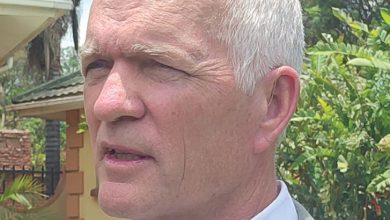Experts urge shift to real production
Malawi must urgently transition from talking about potential to building real productive capacity if it is to compete in regional and global markets, economic and private-sector leaders have warned.
The call comes as the Malawi Trade Report 2025 shows exports fell to $958.5 million in 2024 from $1.03 billion the previous year, while imports remained high at $3.3 billion—leaving the country with a $2.4 billion trade deficit.
Panellists said the numbers confirm a structural crisis that can no longer be solved by isolated interventions.
EDF managing director Frederick Chanza said Malawi’s core weakness is its inability to produce at scale.
He argued that without large-scale industrial capacity, the country will remain trapped in a cycle of exporting raw commodities and importing expensive finished goods.
“If we are going to restructure our trade and narrow the deficit, we must build scale,” he said. “That is why we are financing industrial parks, mining projects and high-value processing—to bring online the productivity needed for Malawi to supply Sadc, Comesa and the rest of the world.”

a point during the panel discussion. | Eric Mtemang’ombe
Chanza said EDF is shifting financing towards industrial infrastructure, agro-processing and mining to fast-track export growth and generate sustainable forex.
On financing, FDH Group chief executive officer William Mpinganjira said liquidity exists in the banking system, but is being channelled into government securities instead of export-oriented production.
“Financing will only be sustainable when we channel it to export-oriented sectors,” he said. “This report shows us clearly where the opportunities are. Our challenge now is to redirect financing from consumption to production.”
MCCCI board member Godwin Ng’oma highlighted the constraints crippling industry competitiveness: forex shortages, high logistics costs and persistent energy instability. He warned that no manufacturer can expand without predictable power supply, affordable transport and consistent access to raw materials.
“Three issues are killing business: forex, logistics and energy,” he said. “No investor will set up production where power is unstable, and no exporter can grow without reliable transport.”
Ng’oma challenged the private sector to stop waiting for government and begin leading Malawi’s export agenda. “The opportunities in soya, cane sugar, pulses and services are clear. Industry must lead.”
Unima associate Professor Winford Masanjala said Malawi’s trade structure still reflects colonial-era patterns that emphasised tobacco, tea and unprocessed commodities.
“The question is not whether Malawi has potential; we all agree it does,” he said. “The real question is why we have failed to realise it. Policy inconsistency, weak productive capacity and the failure to align industry with long-term strategy continue to hold us back.”
He said services trade—ICT, translation, logistics, financial services—offers immediate diversification opportunities if supported by investment and predictable policy.
Secretary for Industrialisation, Business, Trade and Tourism Wiskes Nkombezi said government will use the report’s findings to drive Malawi 2063’s structural transformation agenda.
“Vision 2063 demands fundamental realignment, not incremental adjustments,” he said. “We must deepen value addition, leverage regional markets and use policy consistency to attract investment.”
Across the panel, the message was consistent: Malawi will not close its trade deficit by relying on potential, isolated gains or commodity resilience.
The deficit will narrow only when the country expands production, stabilises its business environment, enforces policy consistency and positions the private sector—not government—as the engine of export-led growth.
Panelists warned that without decisive action, Malawi risks remaining a passive participant in regional markets rather than an active shaper of its economic future.





